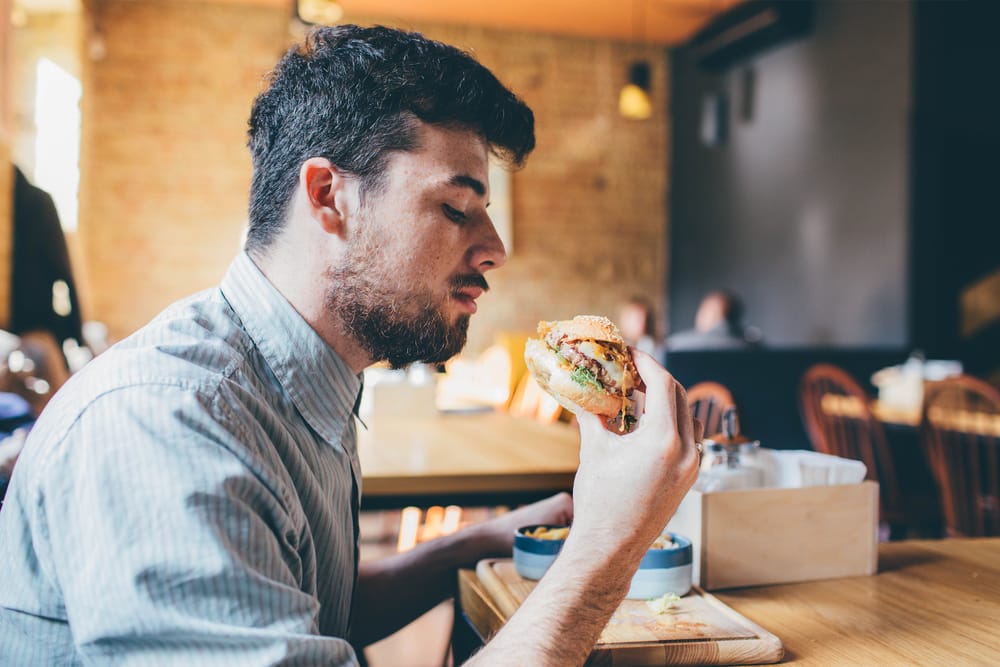Addiction Treatment
Getting Rid of Food Cravings

Written By:

Table of Contents
Veggies get you full quickly, and they’re highly snackable–but few people snack on carrot sticks and cauliflower. The biggest players in the snack-food world are barbecue chips, chocolate chunk cookies, cheesy crackers and the like. It’s not fullness we’re after. It’s warmth, it’s distraction, and it’s habit.
Know What You’re Up Against
Junk food addiction is the most common, and costly, addiction our country has ever faced. An estimated 74 percent of Americans are overweight, and about a third are obese. Junk food corporations chalk up the issue to responsibility, but when you grow up in an environment with cheap, fat-latent food being sold and advertised right and left—that’s a recipe for disaster. As human beings, we’re hardwired to go after fat, sugar, and salt with all our might, to consume as much as we can. MRIS show that these nutrients in abundance have a strong euphoric effect similar to what you get from narcotics. It’s not a fair fight, but it’s one we have to face. Dieting is tricky, because you can go months and months without incident and then, all of a sudden, bam — you’ve just inhaled a pound of milk chocolate. Always stay on your feet, and never forget that you’re addicted.
Learn To Resist
Before you get up to go to the freezer for ice cream, chips, whatever your vice may be–take fifteen minutes or so to assess just how badly you actually want it. Do your taxes, finish up a book chapter, practice your instrument a little, or go outside for a walk. In the meantime, munch on something healthy. Then ask yourself whether you still want that snack. You may realize that your hunger was really just boredom, and that you’re satisfied enough from doing what you chose to do instead.
If You Have To, Seek Treatment
Engaging in productive activities may not feel like much relief, which usually just means you need more time. Food cravings can be intense, but eventually they do settle down. If abstaining from junk food, or just moderating your intake, still feels impossible after weeks of trying, it may be that you have an emotional void too deep for healthy, natural pleasures to penetrate; only the massive dopamine rush you get from food will do. Talk to your physician to determine whether you have an eating disorder. If so, consider meeting with a psychiatrist to figure out the root of the problem and how to fix it. In the meantime, let your friends, family, and anyone supportive know of your goals — they’ll be more careful not to tempt you, and they’ll be inclined not to let you slip if you’re about to.
We know there’s a big stigma associated with eating disorders, so seeking out help may be intimidating, but those who do attend or therapy, group meetings, or other programs are the ones most likely to turn it around for good.
